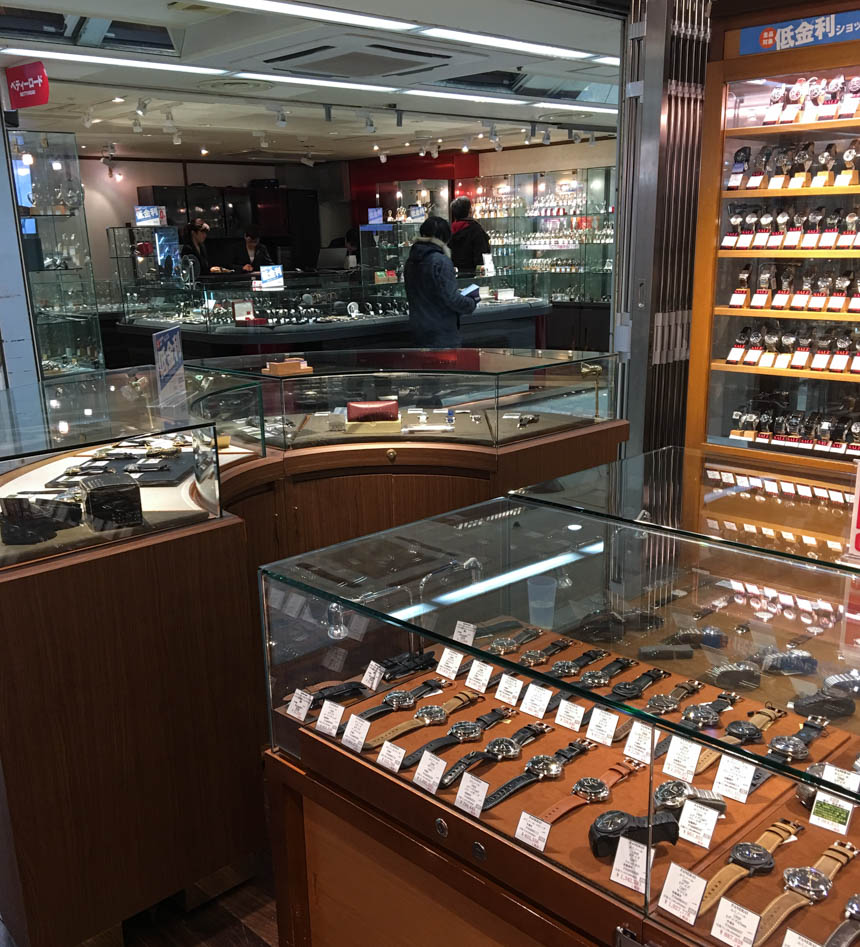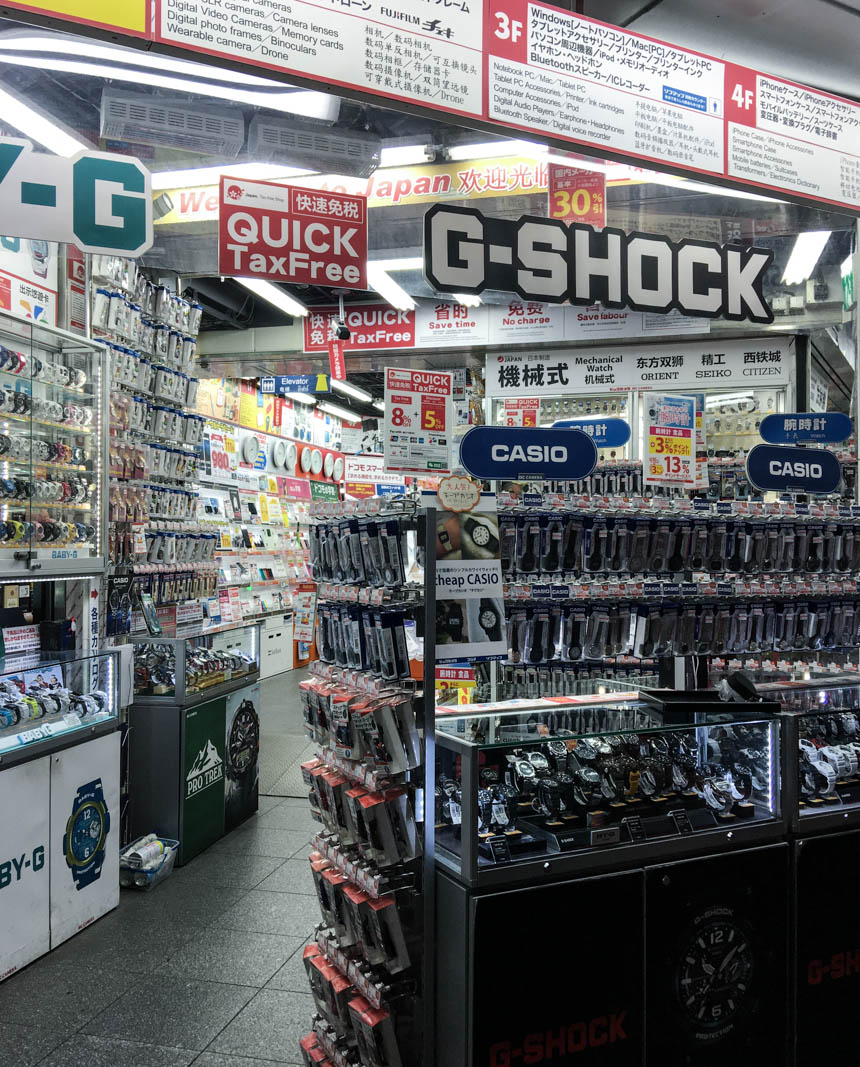
Types Of Watch Stores In Tokyo
Compared to most other watch-loving cities, Tokyo has (in my opinion) more types of places to buy watches. I need to once again emphasize the need to “hunt” in Tokyo because even authorized dealers don’t all have the same inventory. This is even true for domestic watches such as Citizen, Seiko, and Casio. You can go to three authorized dealers for the same brand, and each of them may have a few models the others don’t. That means it isn’t safe to assume that going to one authorized dealer will allow you to see everything. Making things more complicated is the fact that Japan is huge on country- or even store-specific limited editions. That means one particular store might have a limited edition model only available there, which another authorized dealer down the street will not have.
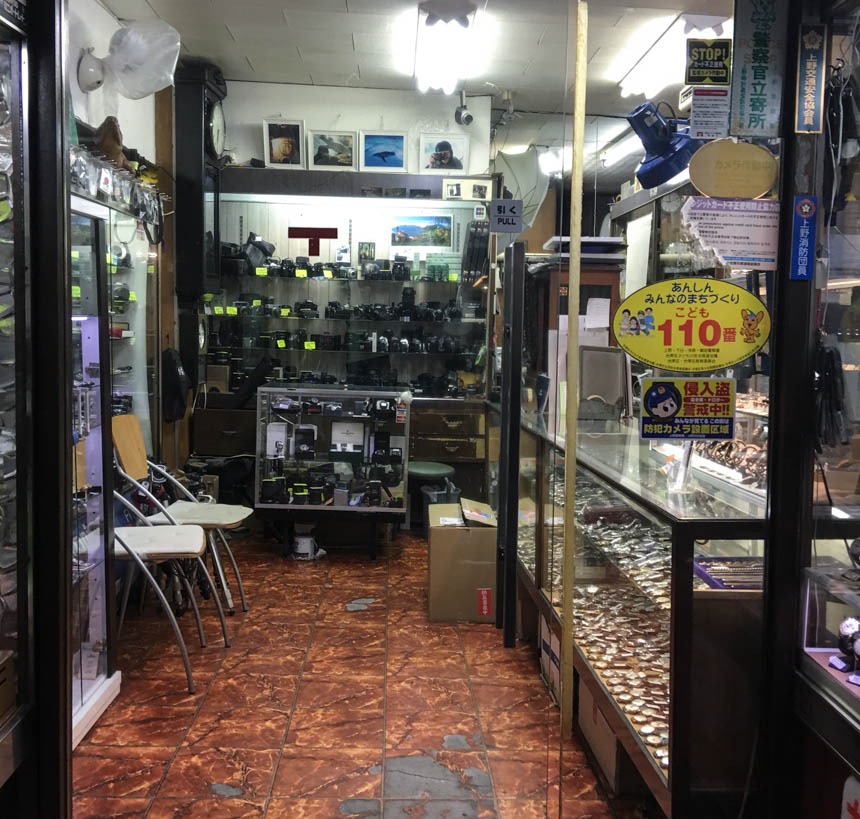
Perhaps the least interesting type of watch store to visit in Tokyo (unless you are a local, I guess) are the mono-brand boutiques for the high-end European brands. Perhaps I say this because such watch stores exist in many major cities so you really won’t find too much unique or special. Prices for Vacheron Constantin to Audemars Piguet watches will not be particularly exciting in Tokyo, and given all that there is to see, it probably isn’t worth your time to visit these stores unless they have a particular local limited edition you are interested in. That does happen, but you didn’t go to Japan to see brand new high-end European brands at full retail price, right?
Then, there are the larger department stores spread out all around Tokyo which mostly all have watch departments. This isn’t where you’ll find used and vintage watches, although sometimes these department stores do have modern pre-owned timepieces along with new watches. In fact, it is sometimes quite difficult to know whether the watches you are looking at are new or used because the condition and presentation of both look quite similar. The department stores are best suited to looking for new Japanese domestic market (JDM) watches as well as less common models and limited editions from major companies. I also find that many of these watch departments are comfortable selling new watches that are a few years old (often at reduced prices). This is unlike many department stores in the West which tend to exclusively carry very new product.
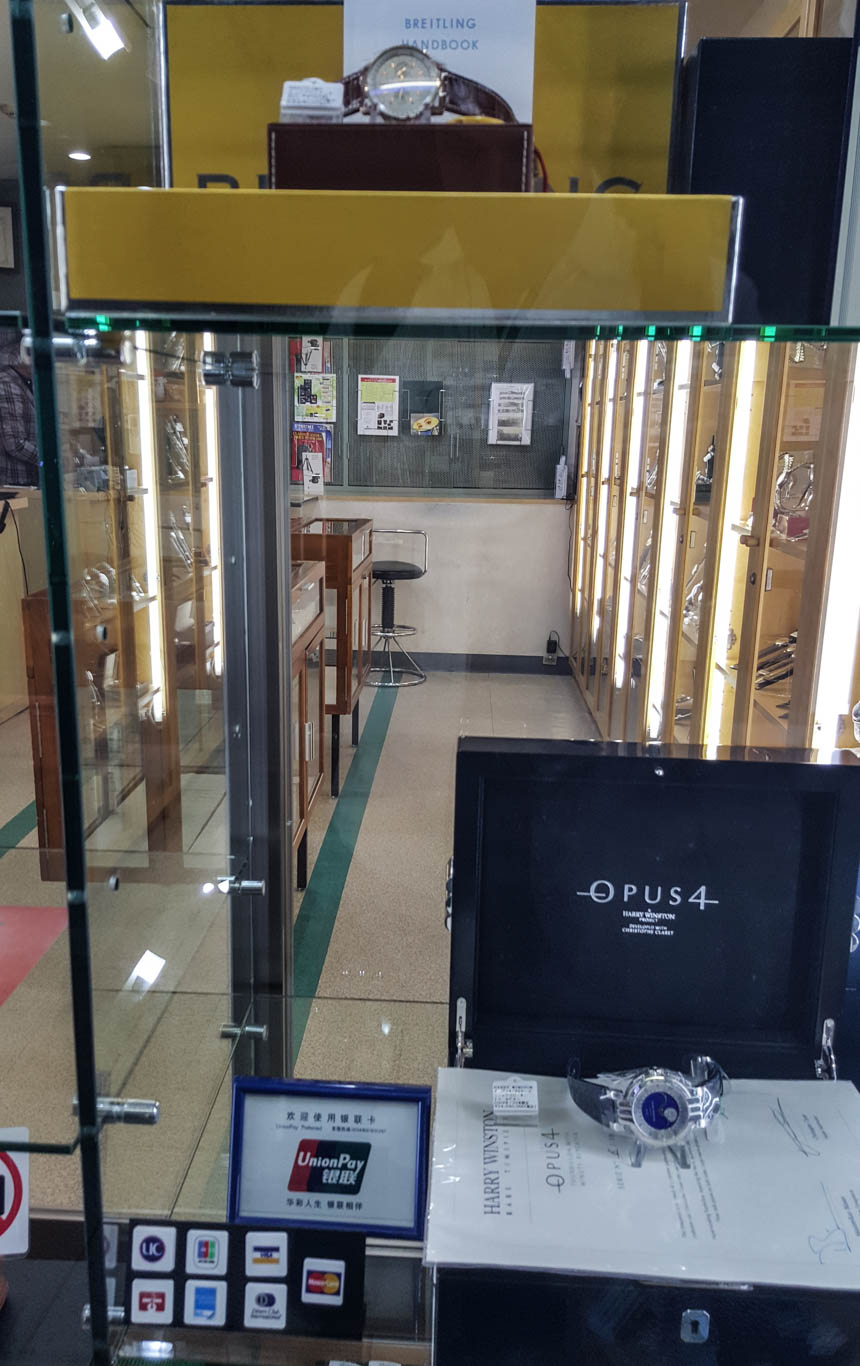
Department stores and brand boutiques are obviously not the place to go looking for good selections of used or vintage watches, but seeing some of the local timepieces as well as the very high-end Japanese Seiko and Citizen watches (as well as those pieces produced by their sub-brands, such as Credor) is a valuable and worthy experience.
Next on the list of watch stores are electronics stores which are often listed as camera stores. As watches are often considered gadgets in Japan (and not jewelry), you’ll find watch departments in many of the major electronic stores around the Tokyo. Most of these stores are between five and ten stories tall, so even if you don’t see any watches on the street level, look carefully for signs.
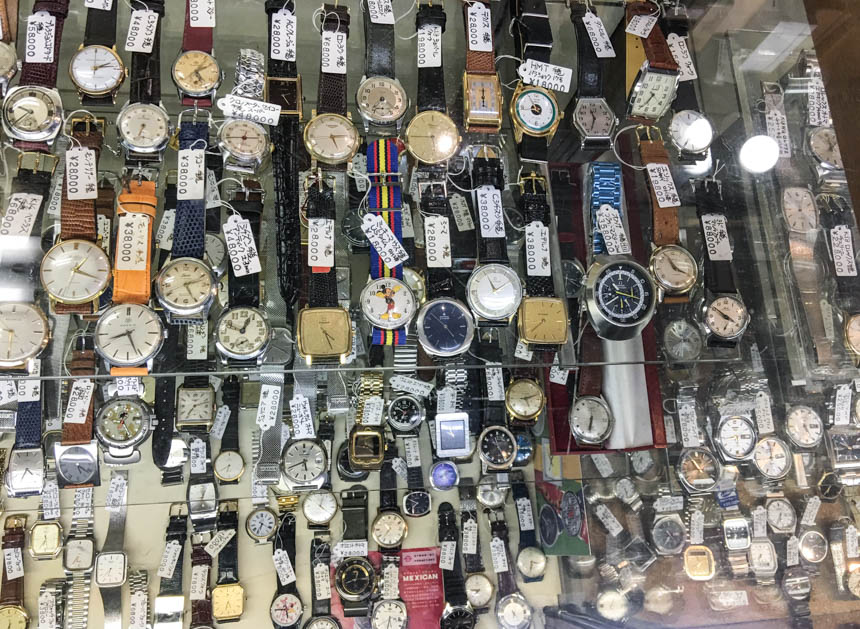
Depending on the electronics store, the variety and prices of the watches vary, but I think most watch lovers will be impressed with what they can find. In addition to lower-priced domestic market Japanese watches, you’ll find high-end Japanese watches as well as some very high-end Swiss watches at these stores. On top of that, you can even find rare brands, used watches, and in some instances, vintage watches. What really makes these stores important for watch shopping in Tokyo is that even though most of their watches are new, they are mostly discounted. These places are where “street prices” rule, and they each try to outdo each other – especially when it comes to Japanese watches. Whereas retail prices rule at the major department stores, these electronics mega-stores offer discounts and even some ability to bargain. I’d say there are at least four or five excellently equipped watch departments hidden in electronics stores in Tokyo – and those are only the ones I’ve visited. So include at least a few of these places in any complete watch-shopping adventure in Tokyo.
We’ve more or less covered the easier-to-find watch stores, because the next type of places are either more difficult to find or have less predictable types of inventory. The real meat and potatoes of Tokyo used and vintage watch shopping is being an explorer and visiting what I think of watch shopping districts with a lot of very small places that are hard to find on a map. There are a few good tips to remember about how to find these places.
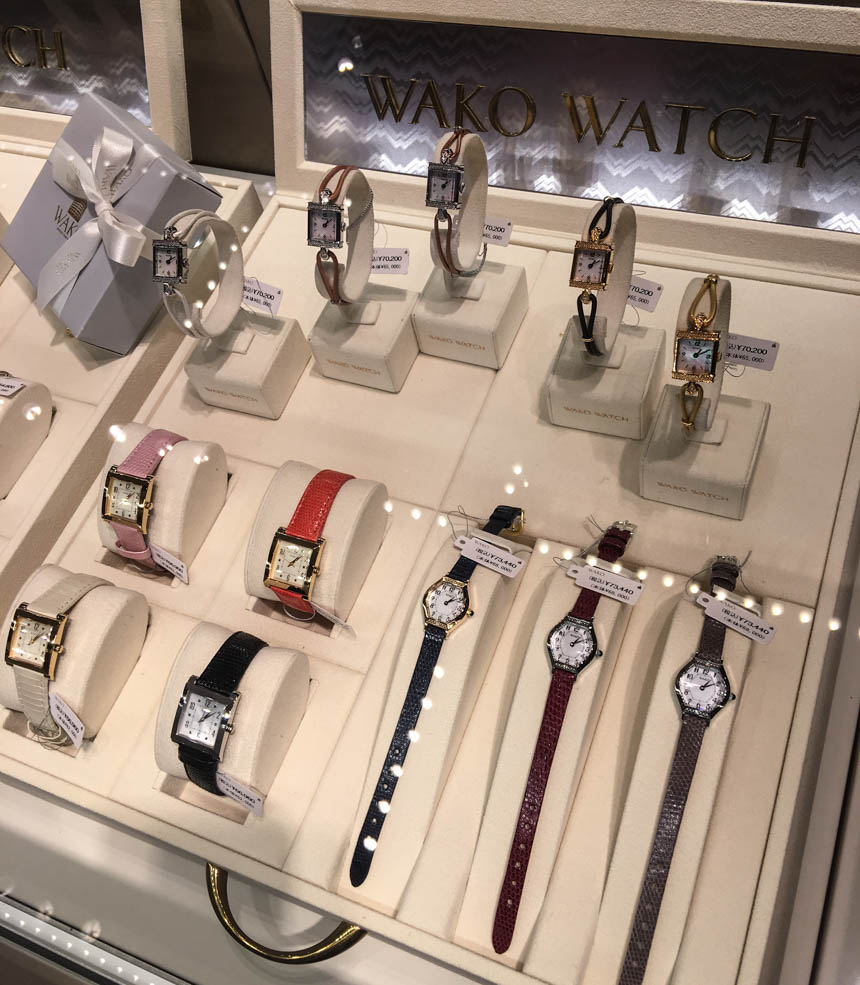
All of the major shopping districts in Tokyo are adjacent to the major train and subway station hubs. A quick look at the Tokyo subway map will easily let you determine what the major stations are, and within short walking distance from there are enormous and cluttered shopping districts with everything from street food to $100,000 vintage Rolex timepieces. Here, there are two types of stores you should be looking for.
The first are pre-owned luxury good stores. These tend to be small and nearby to pawn shops. From what I could tell, pawn shops in Tokyo work a bit differently, at least than those in the United States. In the US, you can sell items as well as buy items at a pawn shop. In Japan, the system seems to work a bit differently, as there are separate locations for buying items and selling them. Most of the places that sell the pre-owned goods specialize in two main products – women’s hand bags and watches (for both men and women). It makes sense, of course, but in Japan the high-end timepiece is linked to the high-end handbag. In fact, many of these places can be located by looking for signs that have a watch and a purse on them. When you see that sign, you know the store is worth at least a quick visit.
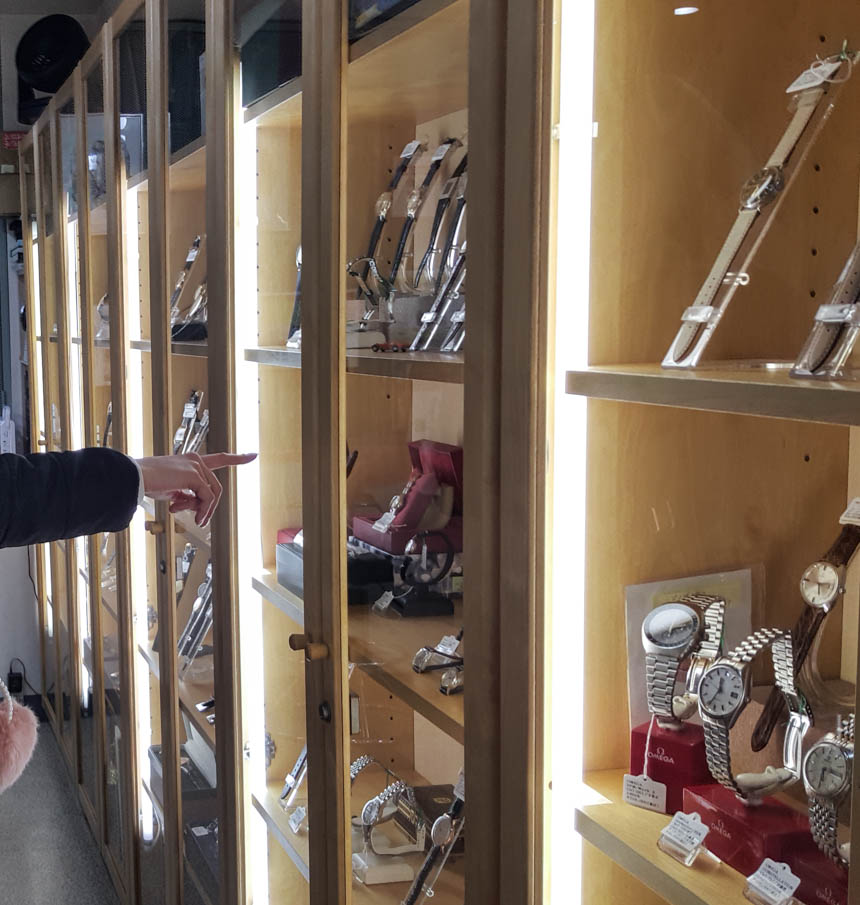
These types of watch and purse stores tend be located in the same area, which is a good thing. That means where there is one, there are usually more. Japanese streets can be tiny, so you’ll need to explore large avenues to narrow pedestrian-only alleys to find these stores. It is possible that on Japanese Google maps you can easily find these places, but using English, it is incredibly hard to look for them in advance. All I can say is that the ones I have found tend to be located within a five-minute walk of major subway stations.
The variety and value of watches in these stores can vary appreciably. Some have just a few Rolex and Cartier timepieces, while others can have literally hundreds of watches. You’ll also find that some of the stores have entirely “nice” watches while others mix in Patek Philippe watches with no-name fashion brand models sold for $50. You really can’t judge a book by its cover, and because there are some amazing finds, these types of stores should be explored each time you see one. These places are typically best for modern pre-owned watches, but you’ll also find vintage timepieces (especially Rolex) from time to time at these locations.
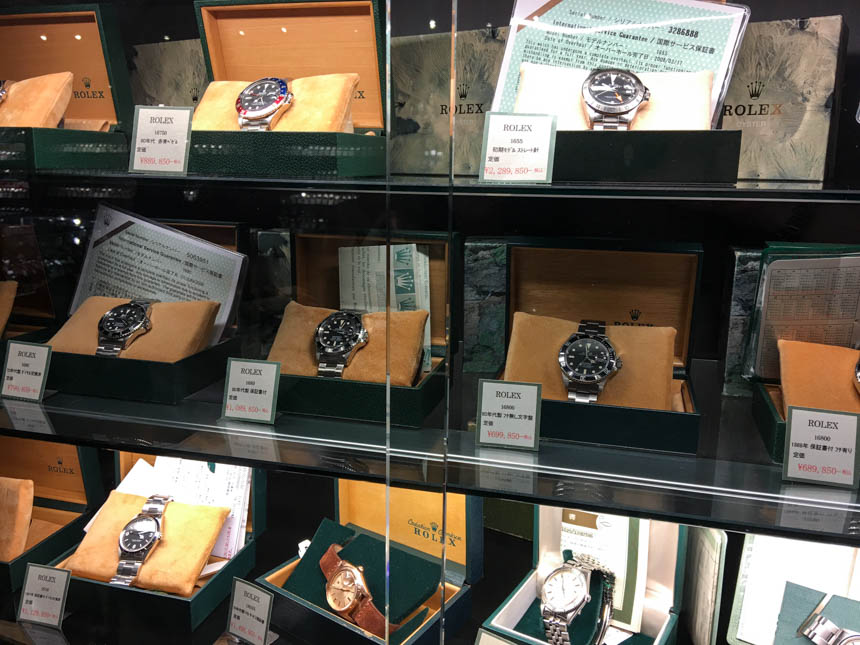
The last type of Tokyo watch stores are the more specialty pre-owned and vintage watch retailers, and most of them are as small and difficult to find as the watch and purse stores discussed above. I discovered an enormous variety of these stores in all types of locations from relatively out-of-the-way alleys to upstairs in tightly packed stores inside of dense shopping mall-style buildings. What makes these stores great isn’t just how they vary in theme, but also how the watches you find vary in price and rarity. I saw more than one store barely able to fit four customers that contained incredible rare and valuable vintage timepieces costing well over $100,000. If you think that all those auction-favorite rare Rolex models aren’t available in stores, then think again. Want a Paul Newman Daytona? You’ll pay for it, but otherwise, no problem.
Some of these small vintage and pre-owned watch stores specialize exclusively in watches, and others have one or more collectibles that are valued by locals such as cameras, coins, and even toys.
I can’t begin to guess how many of these stores are located around Tokyo, and where they are all located. I am sure there are some out-of-the-way ones, but from what I could tell, most of them are sort of bundled together in various areas – that, again, tend be relatively near to major subway stations.
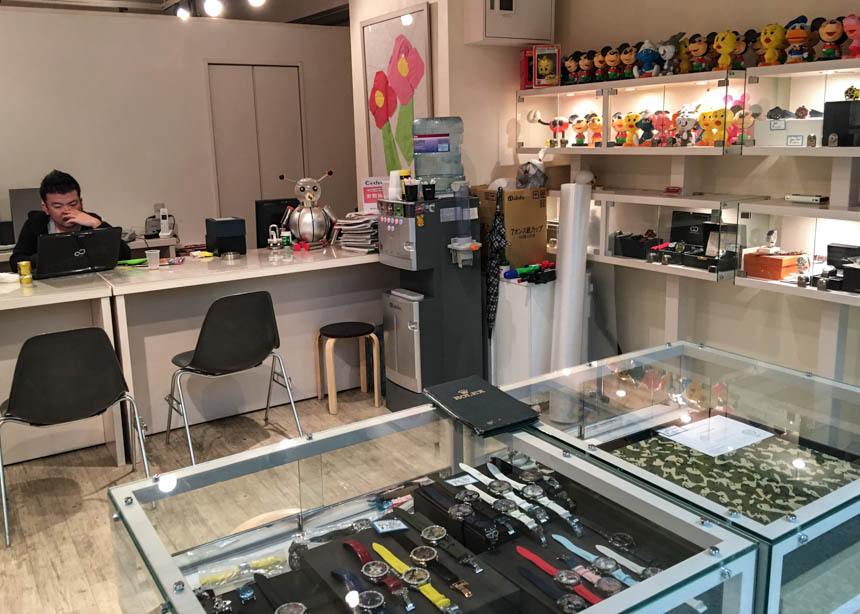
These smaller specialty stores are where vintage watch lovers will find the most to enjoy. In addition to vintage European and American watches, there are a lot of very cool vintage Japanese watches. I went to one of these stores with a few employees of a Japanese watch brand and they actually found a model from their brand that they immediately purchased for the brand’s own archival collection. Better yet is that the condition of watches in these places tends to be excellent. If the condition of a watch is not amazing, expect for the price to be extremely reasonable. This is because, in my experience, Japanese watch buyers place extreme value on watches that look “perfect.” This is not a culture that seems to value an aged “patina” on watches. If you do, however, then expect some stellar deals.

